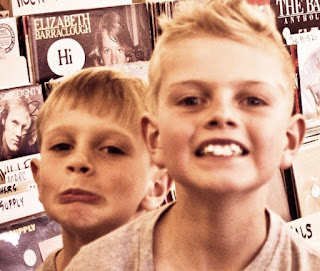The question was already rumbling in my stomach when my thoughts rose into consciousness this morning. I rolled from one side of the bed to the other as the uneasy feeling lingered. My husband had already gone to a meeting. I inched to his side of the bed, rested my head on his warm pillow and waited. Waited for the right answer to appear.
Even as I showered, as I dressed, as I pressed my foot into the gas pedal, I was still wondering about the question. And the answer. You see, I was going to talk to a woman I went to graduate school with that night. She had read all about Riley’s hospitalizations and surgeries when I wrote about him more than a decade ago. I cannot even recall the last time I saw her, probably at graduation. Or shortly after at a party at her house in San Jose. I can’t remember if she was at his memorial. If she was, I certainly haven’t seen her since then.
But when we talk on the phone, I will say hello. She will say hello. Then she will say, “How are you?” And I have no idea how to answer that question, especially when asked by someone I haven’t talked with in so long. Someone who hasn’t witnessed the howling, the blood-shot eyes, the twitchy version of myself that exists when I leave my safe bubble at home, when I venture into the world. The half-eaten version of me, even though I look normal on the outside. Or normal enough. The mom of a 3-year-old.
This woman didn’t witness all the months when I didn’t leave my bed. And after that, when I didn’t shower or comb my hair and wore the same thing for six or seven days in a row because I didn’t know how to get dressed. The woman who cut off all of her hair to look ugly, hoping to match how I felt on the inside. When we talk, this woman will hear the fast-forwarded version of me. The one that can talk on the phone, the woman who has taught creative writing and who founded a literary magazine in grief’s wake. The one that lights up talking about narrative arcs and creating three-dimensional worlds.
And all this thinking about the different versions of me since Riley died in 2014 makes me wonder how I got here. How did the accumulation of time and space from Riley’s death allow me to do those things, to get to the place where I can wonder how I should answer that question. Early on, that innocent question felt so offensive. It doesn’t anymore, and when I’m at the checkout counter, I can say, “Fine, thanks. How are you?” But wondering about it in the context of this pending phone call feels splintered. And strange because I am different from before Riley died. And I am different from the time just after Riley died. And I’m different from before the baby was born. I’m still broken, like a bone fracture that wasn’t set and the malunion impairs function longterm. I’ll always be broken, impaired. But I’m also other things. And I won’t necessarily cry when I talk about Riley.
As I downed a hot cup of tea in the moments between scratching things off the to-do list, I figured it out. When she asks the inevitable question, I will say, “I’ve been wondering how to answer that question all day.” Because it’s the truth.

